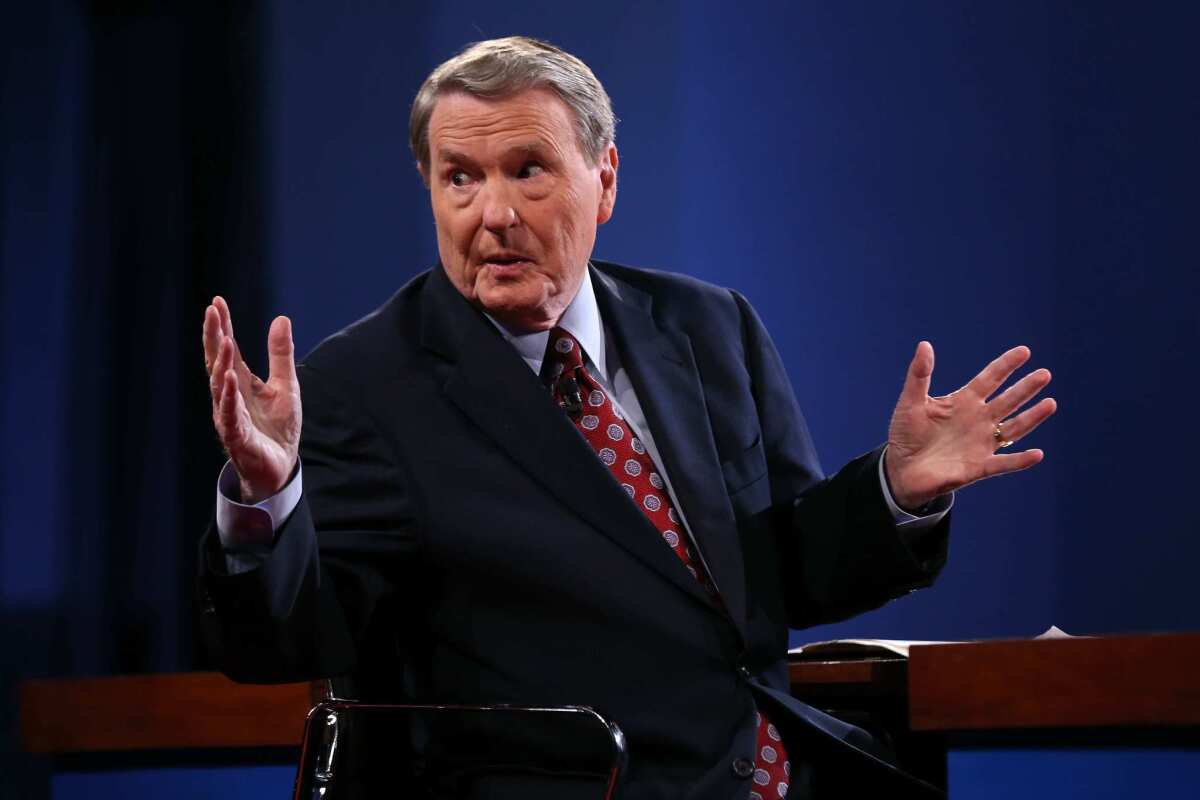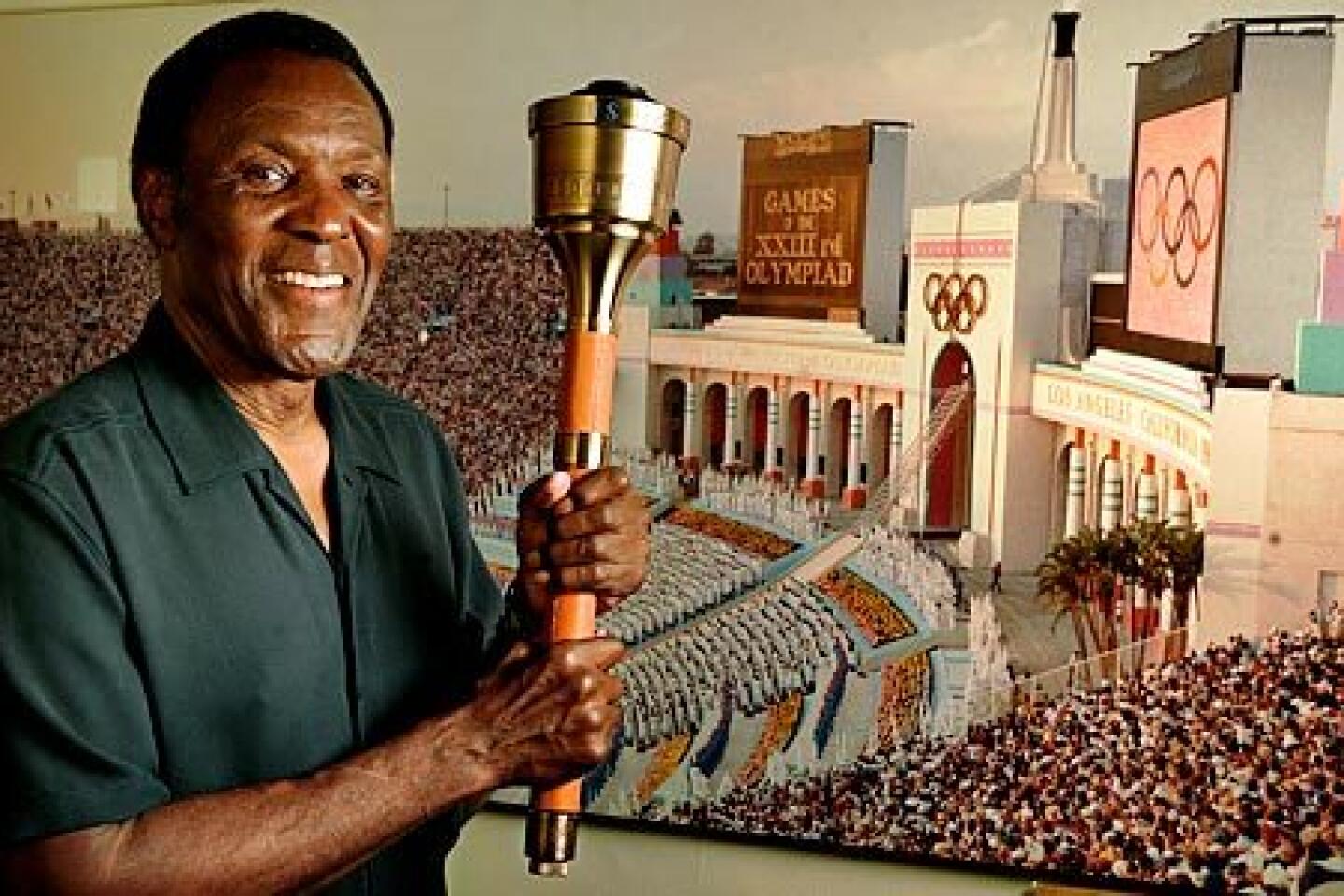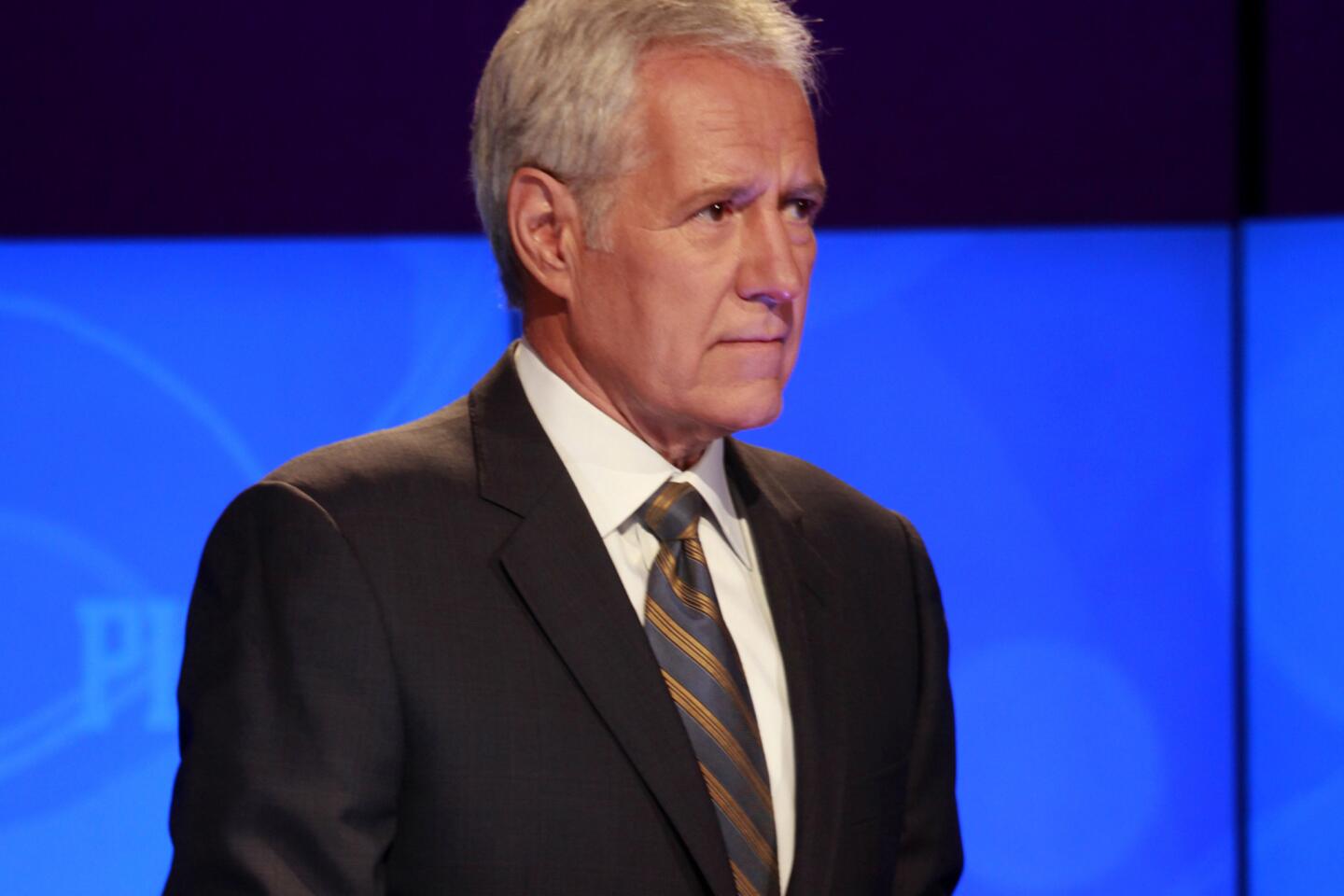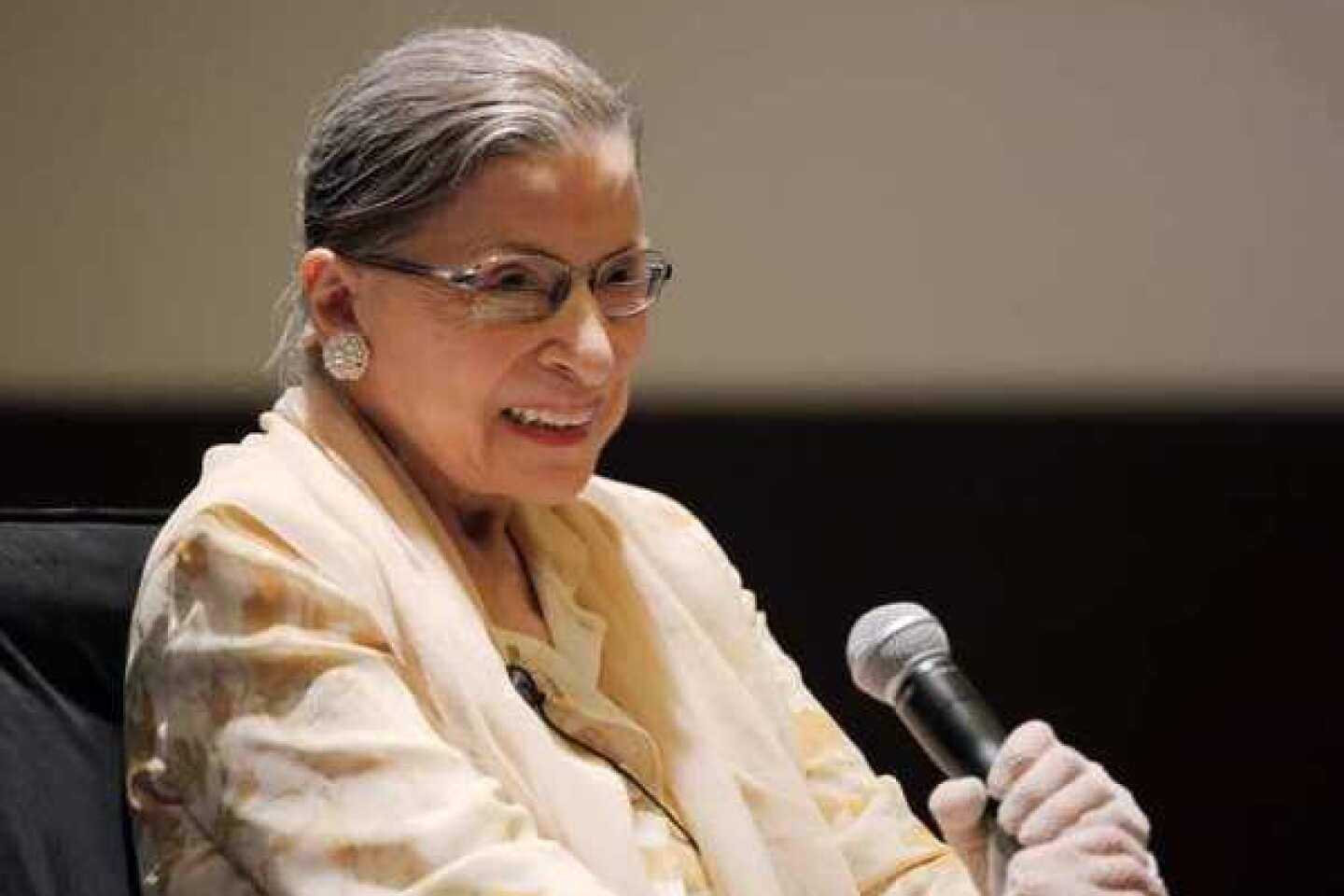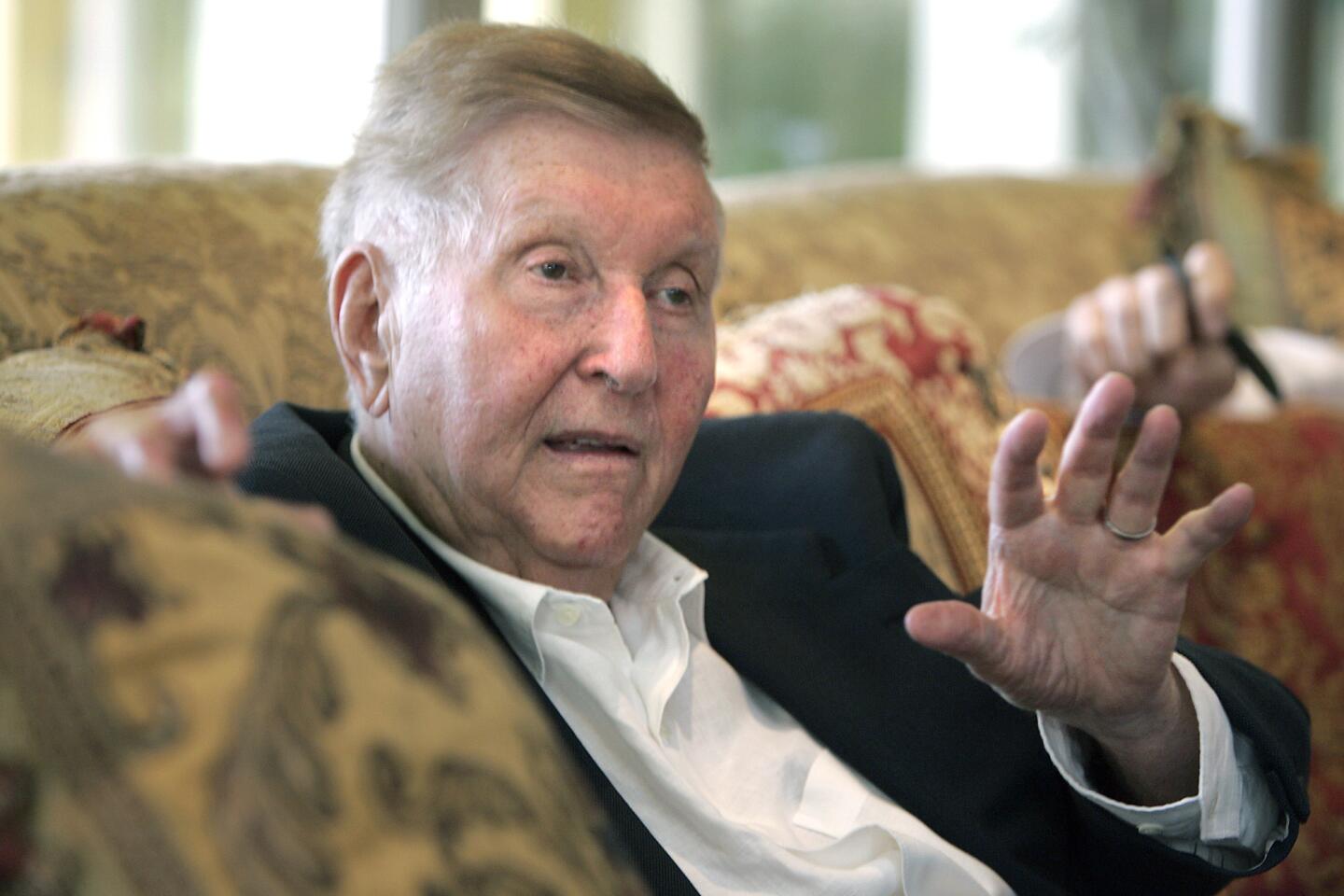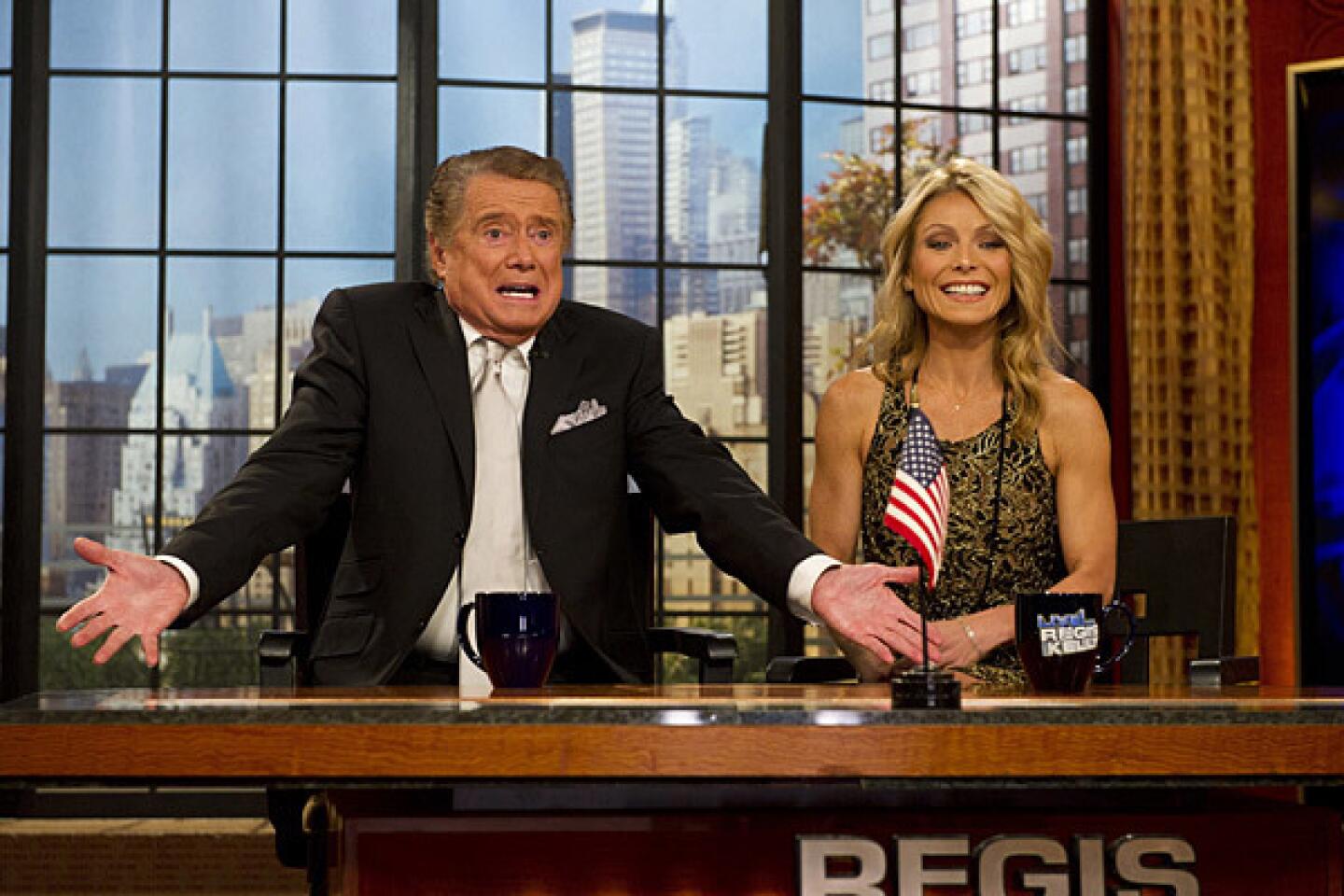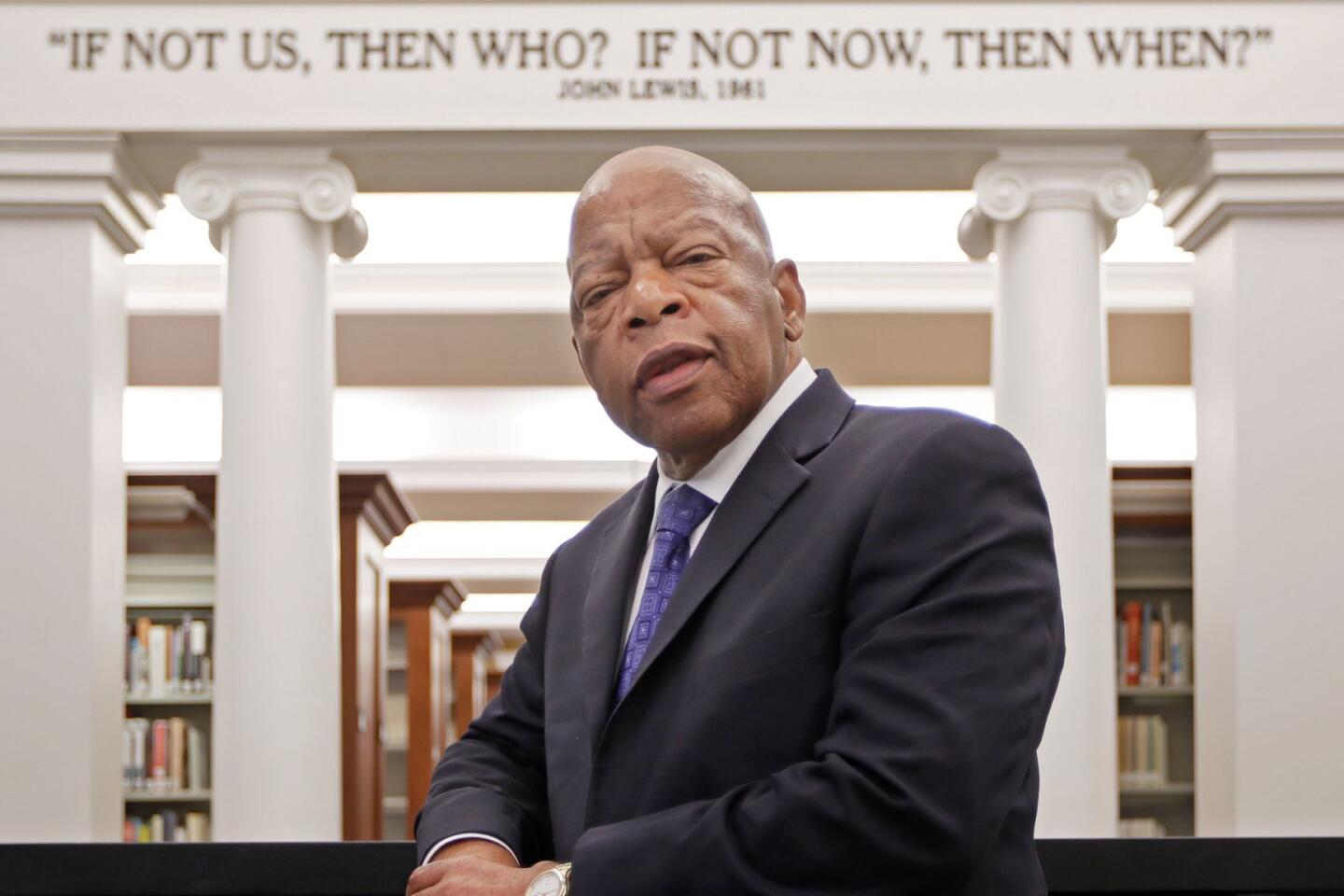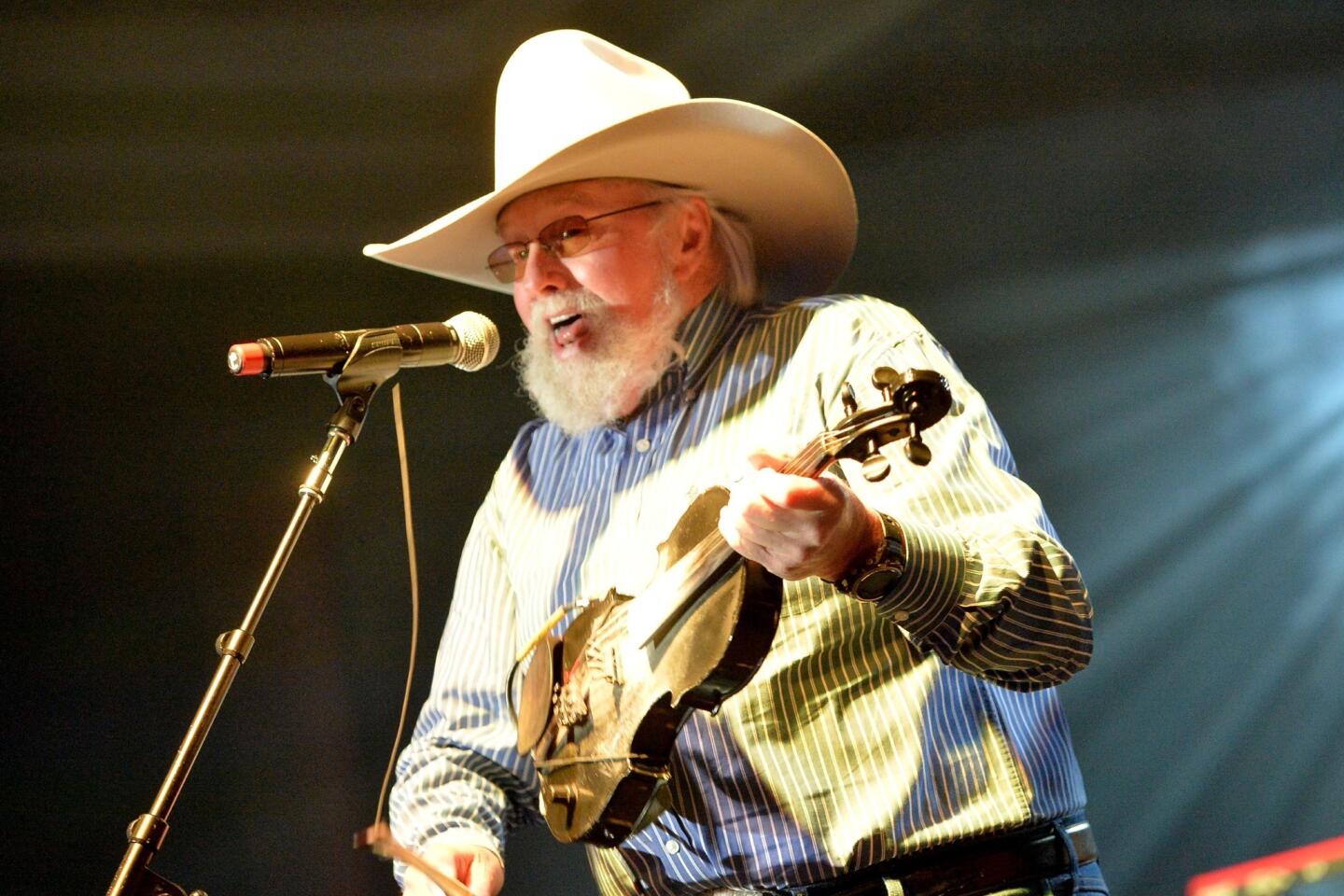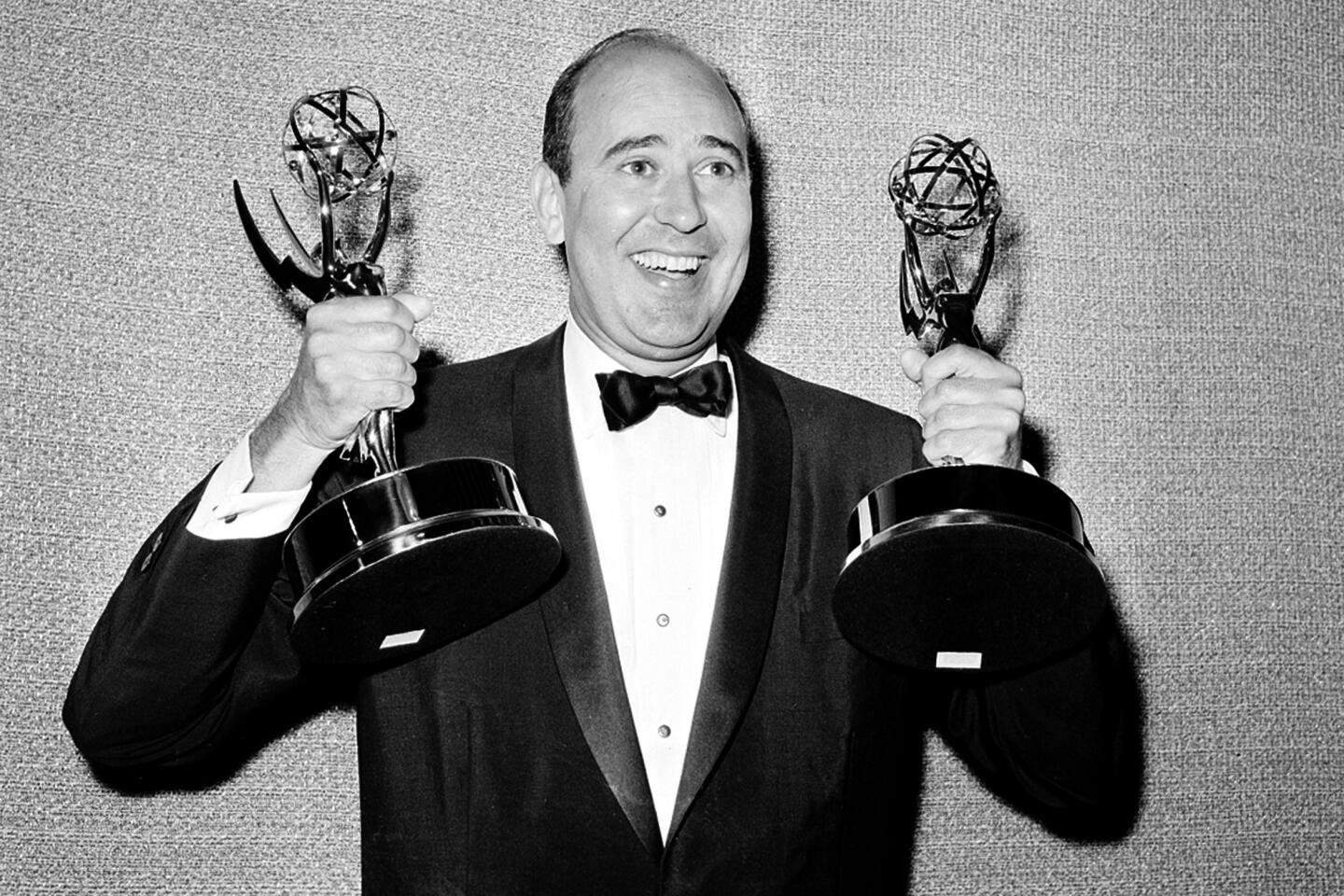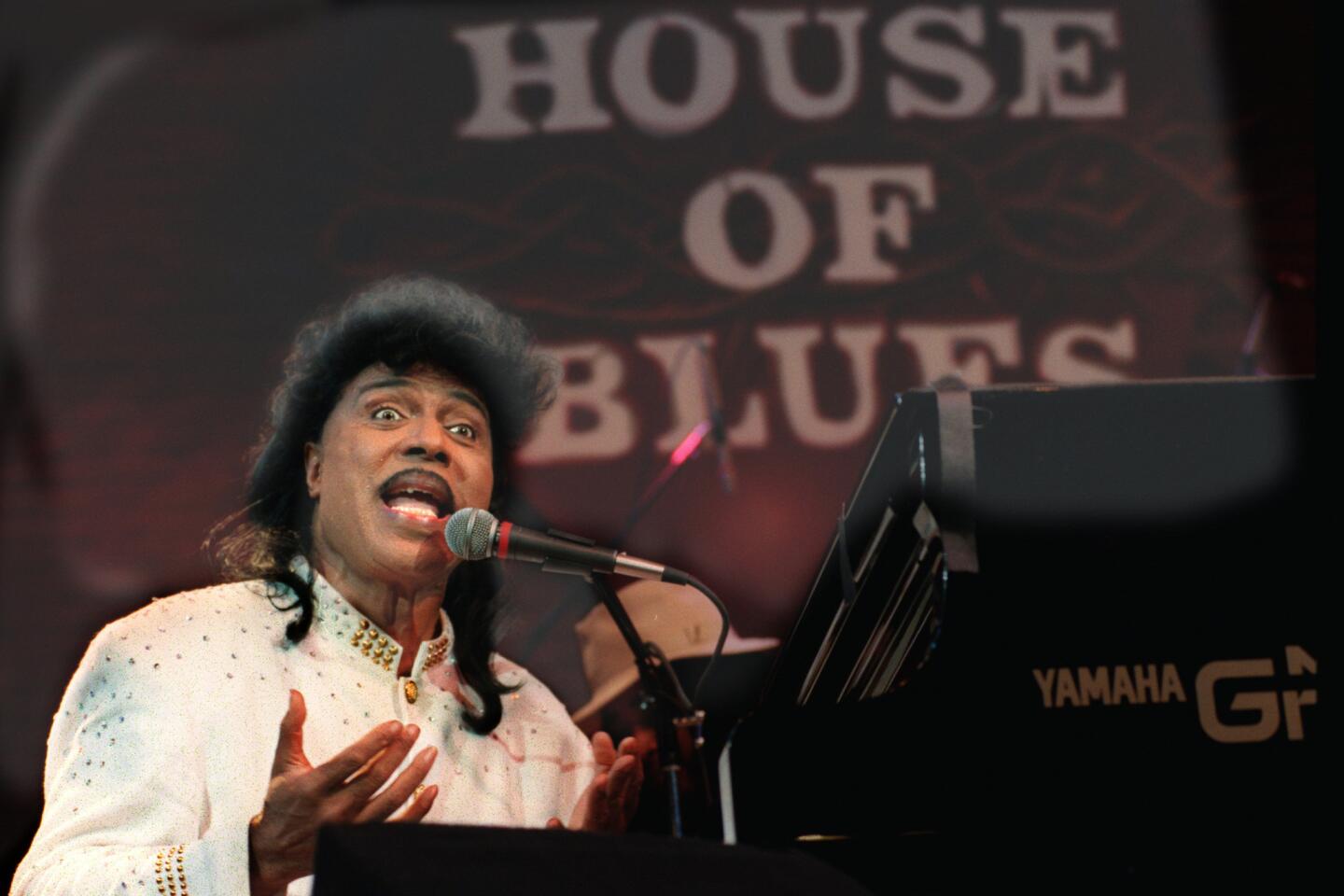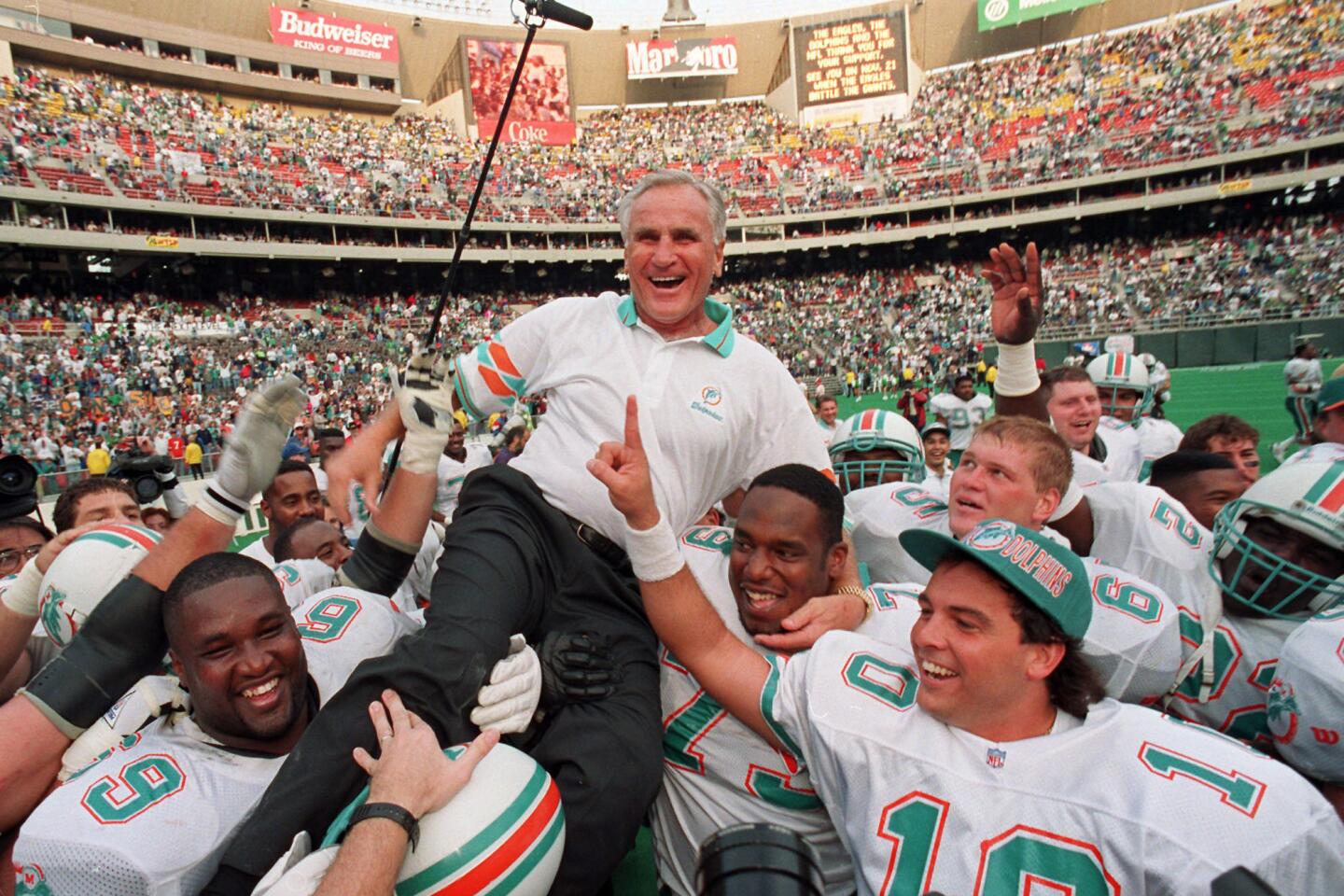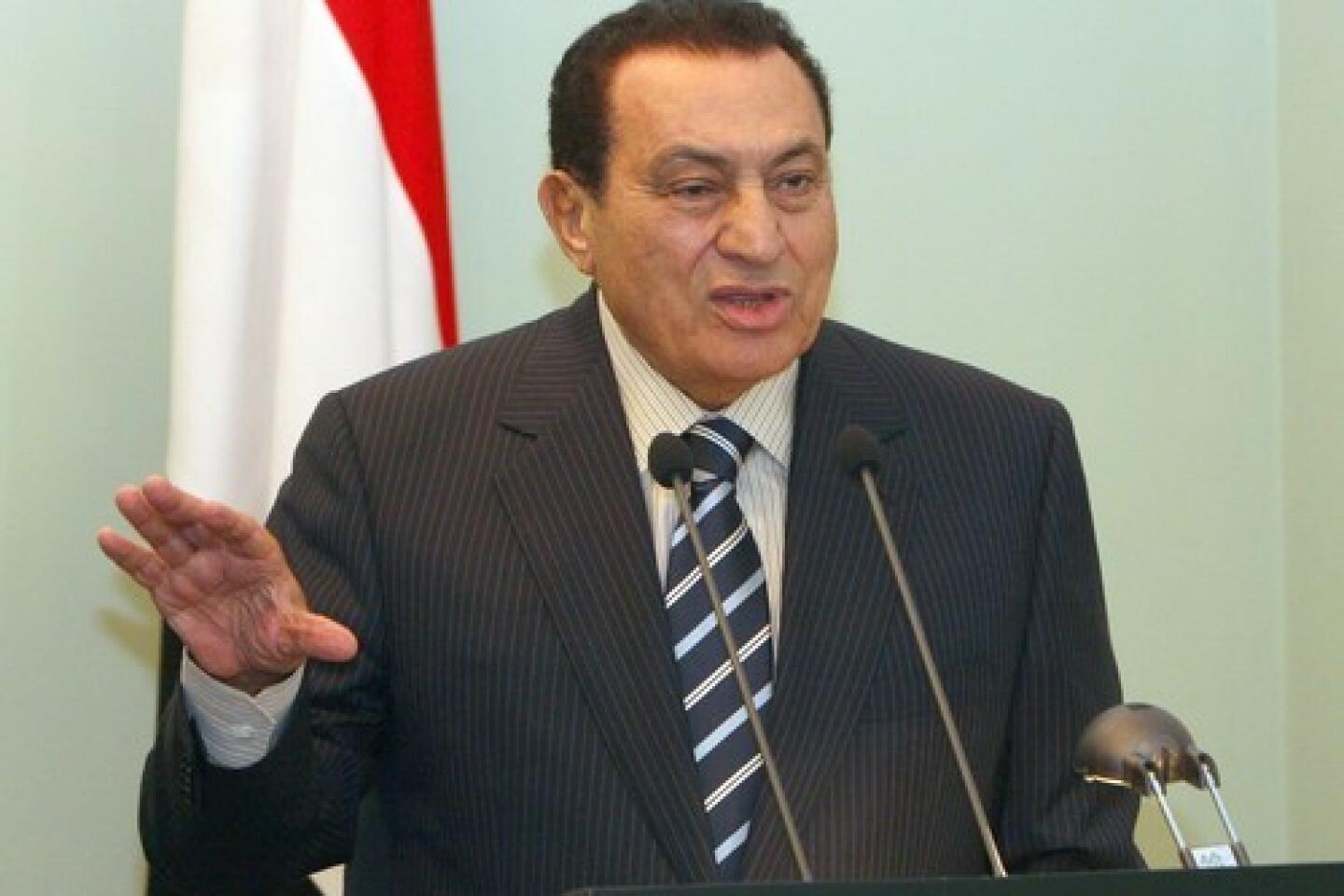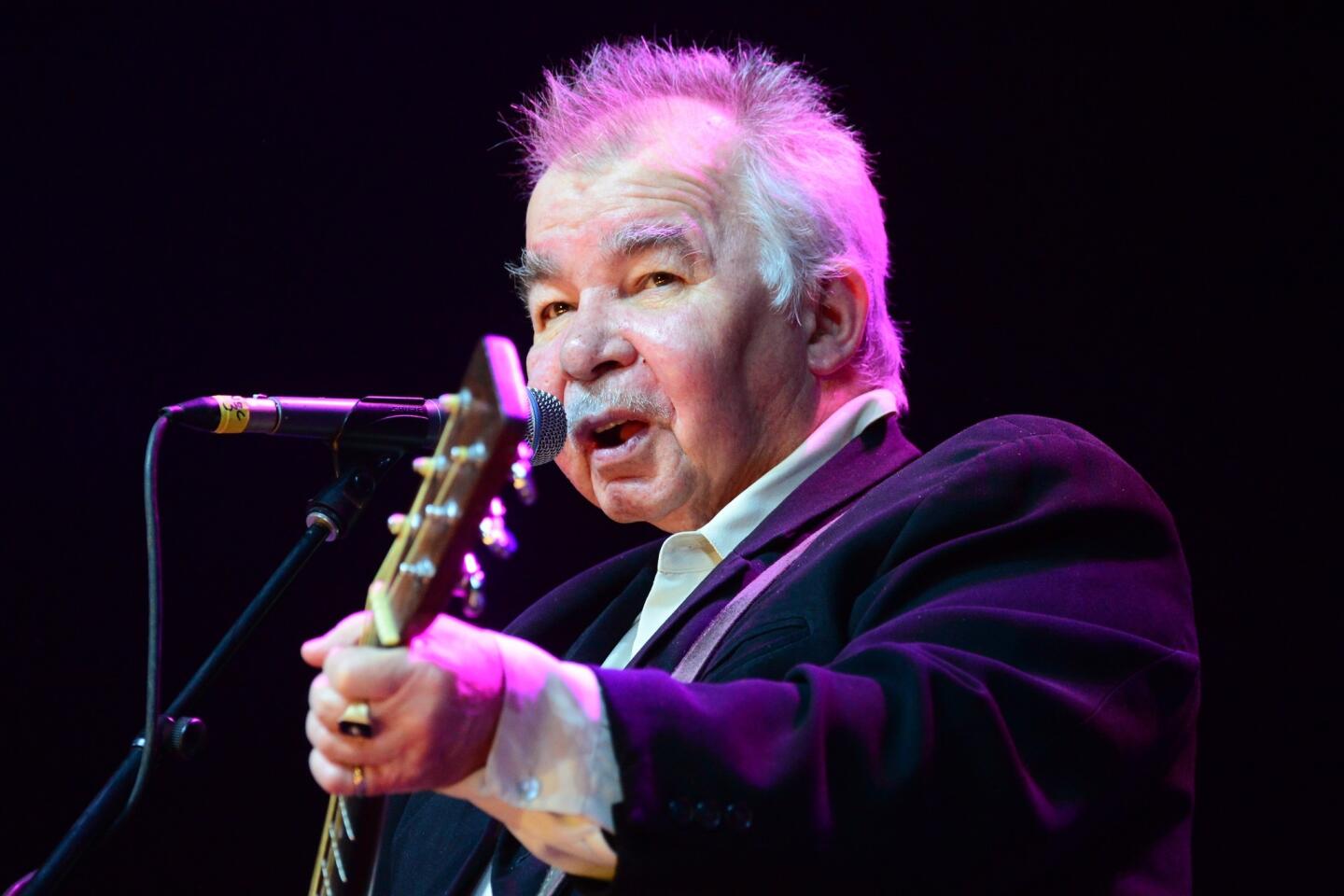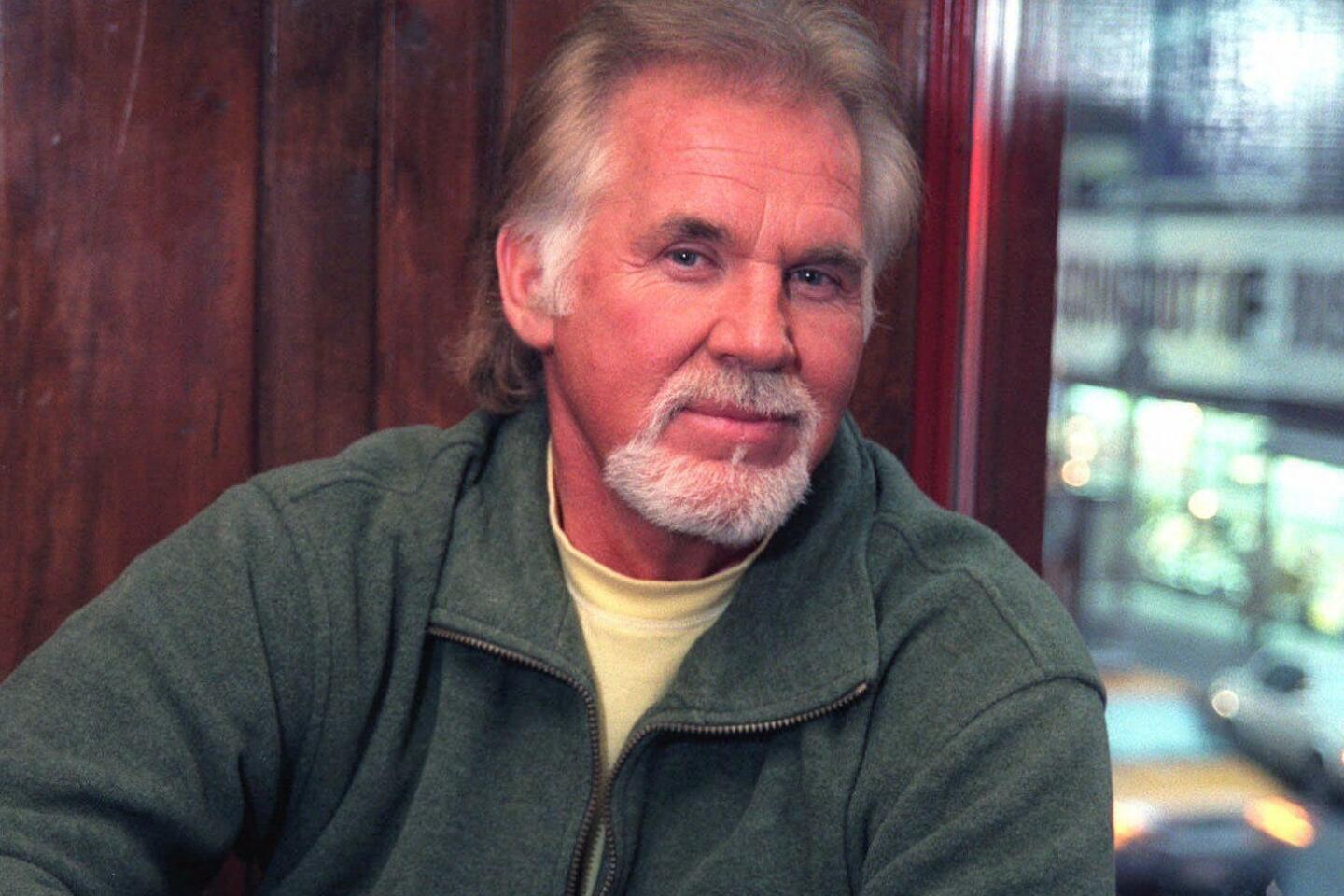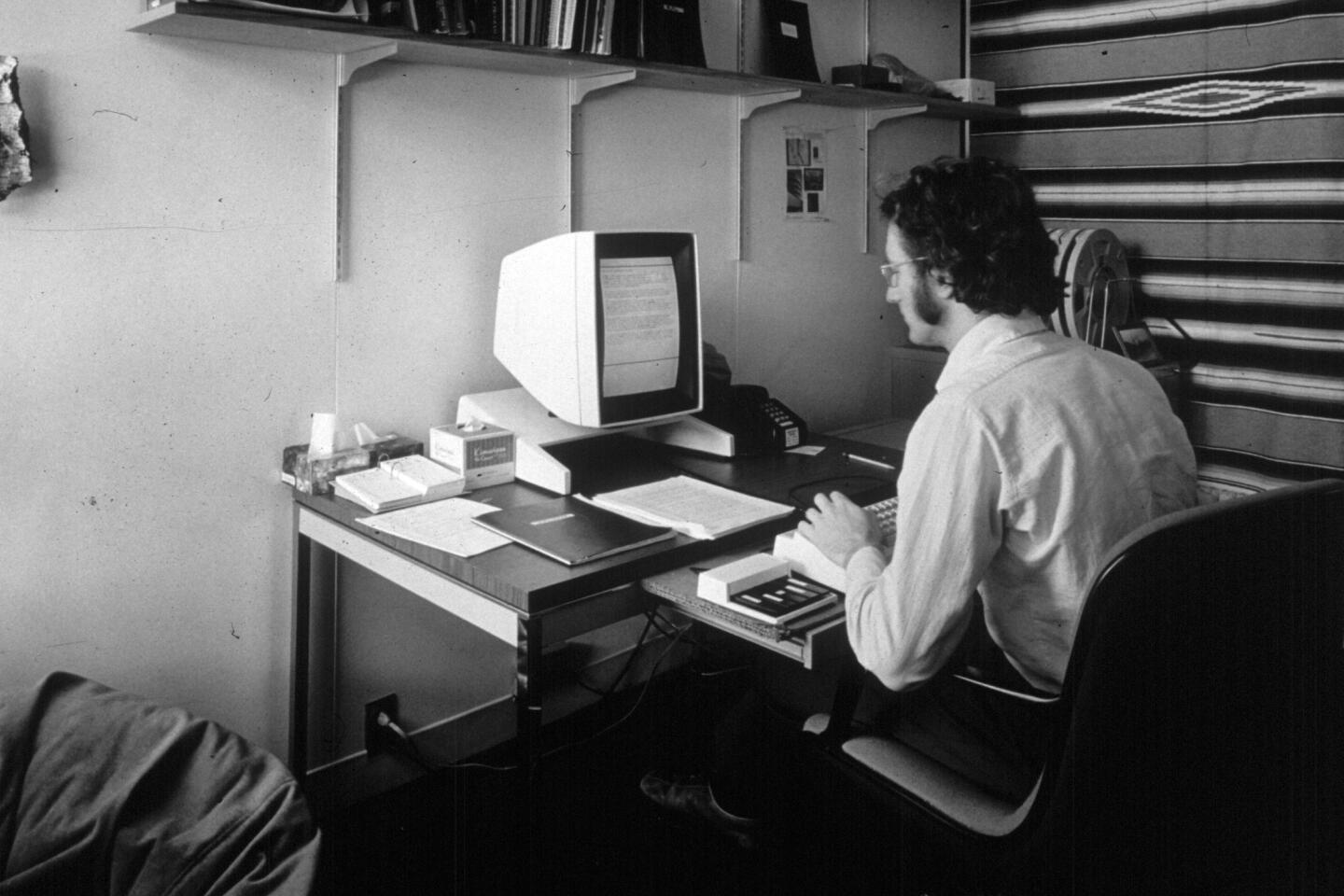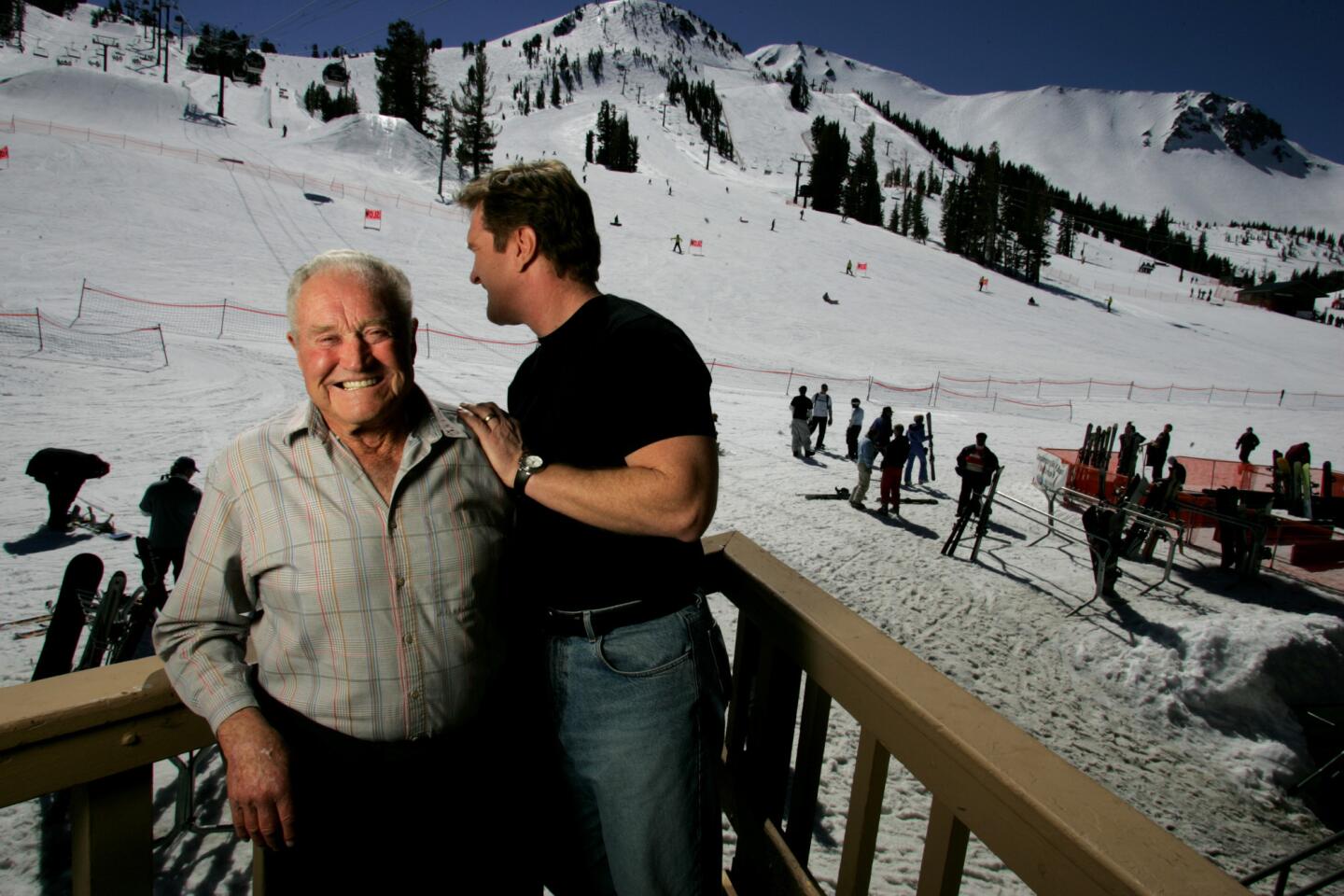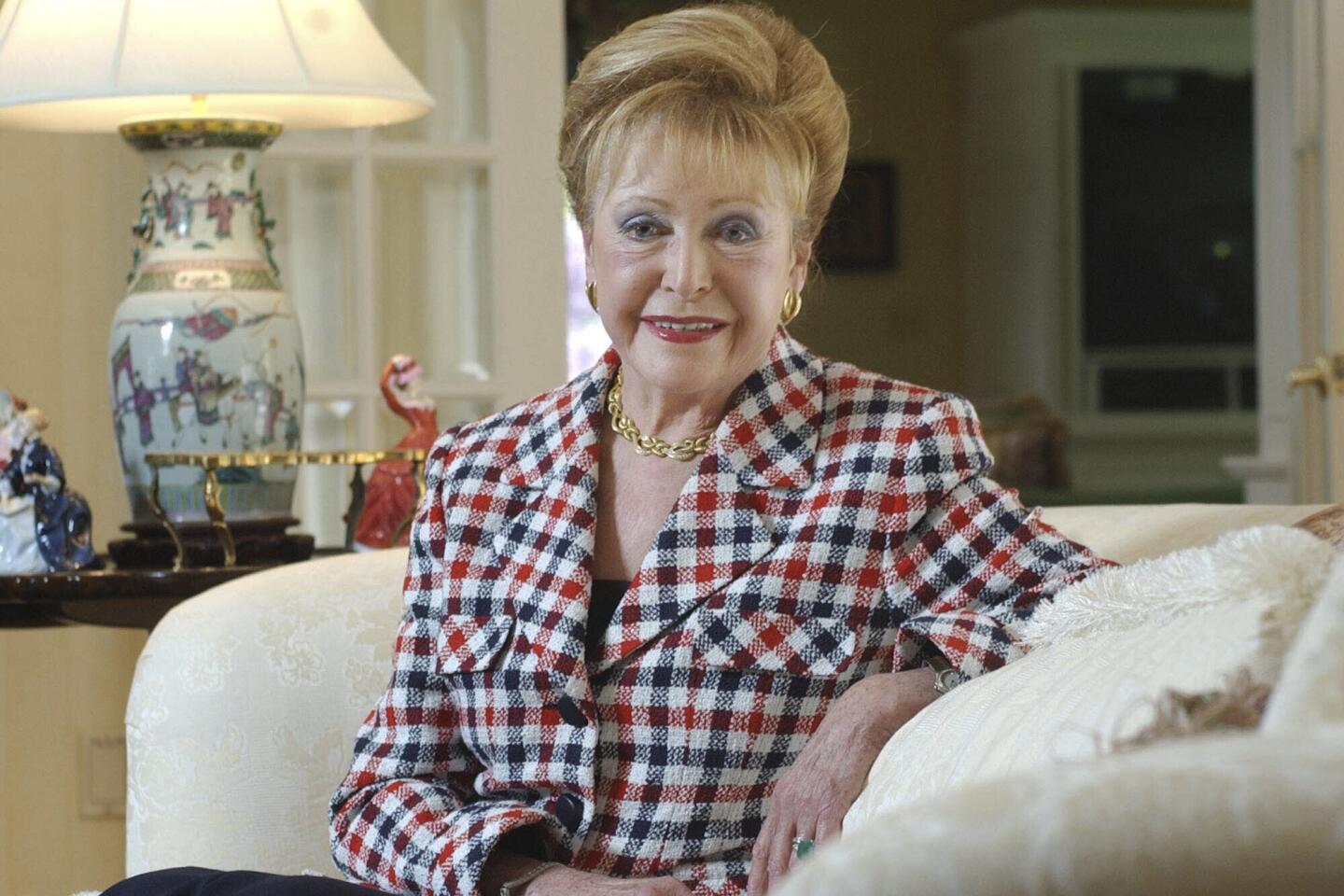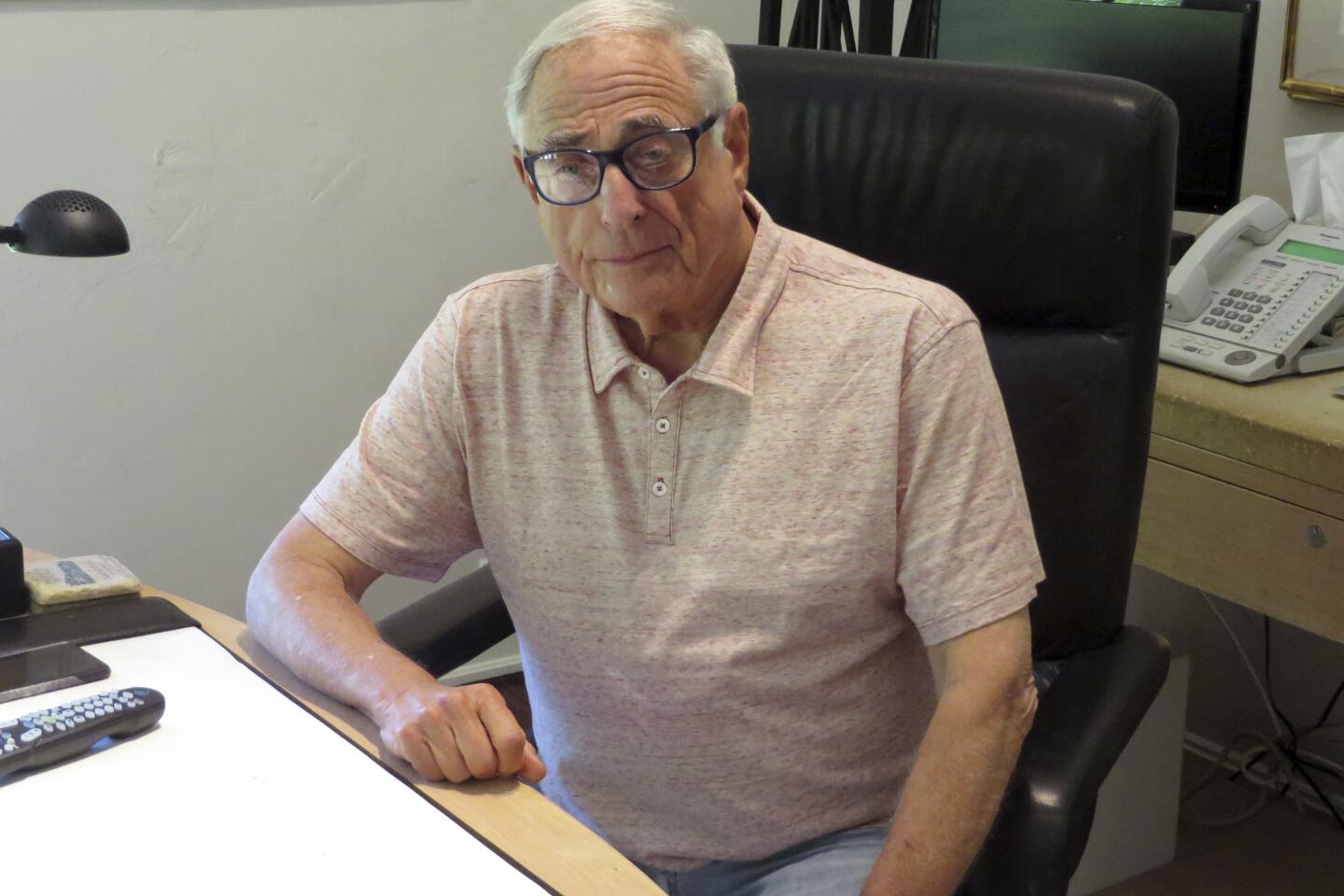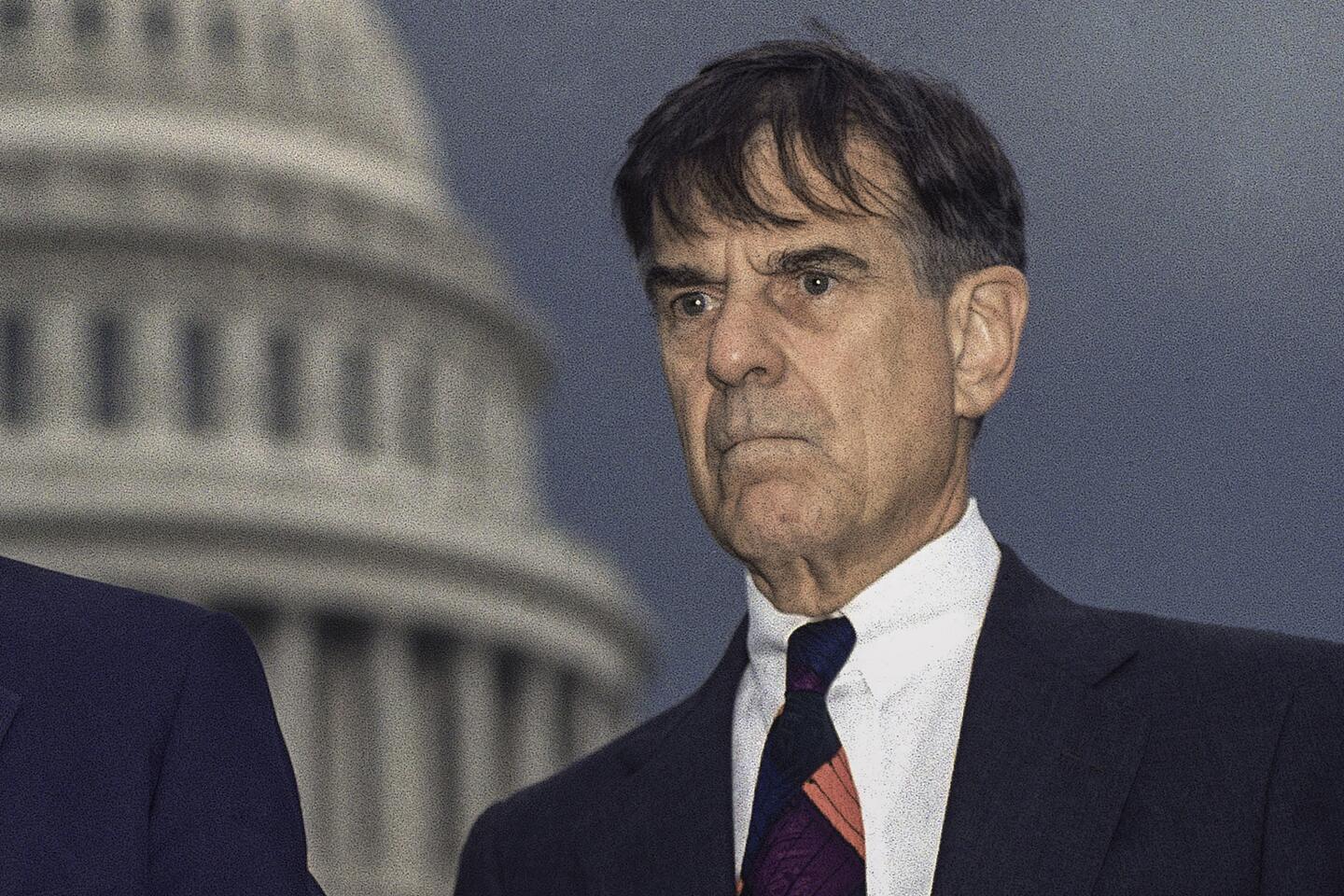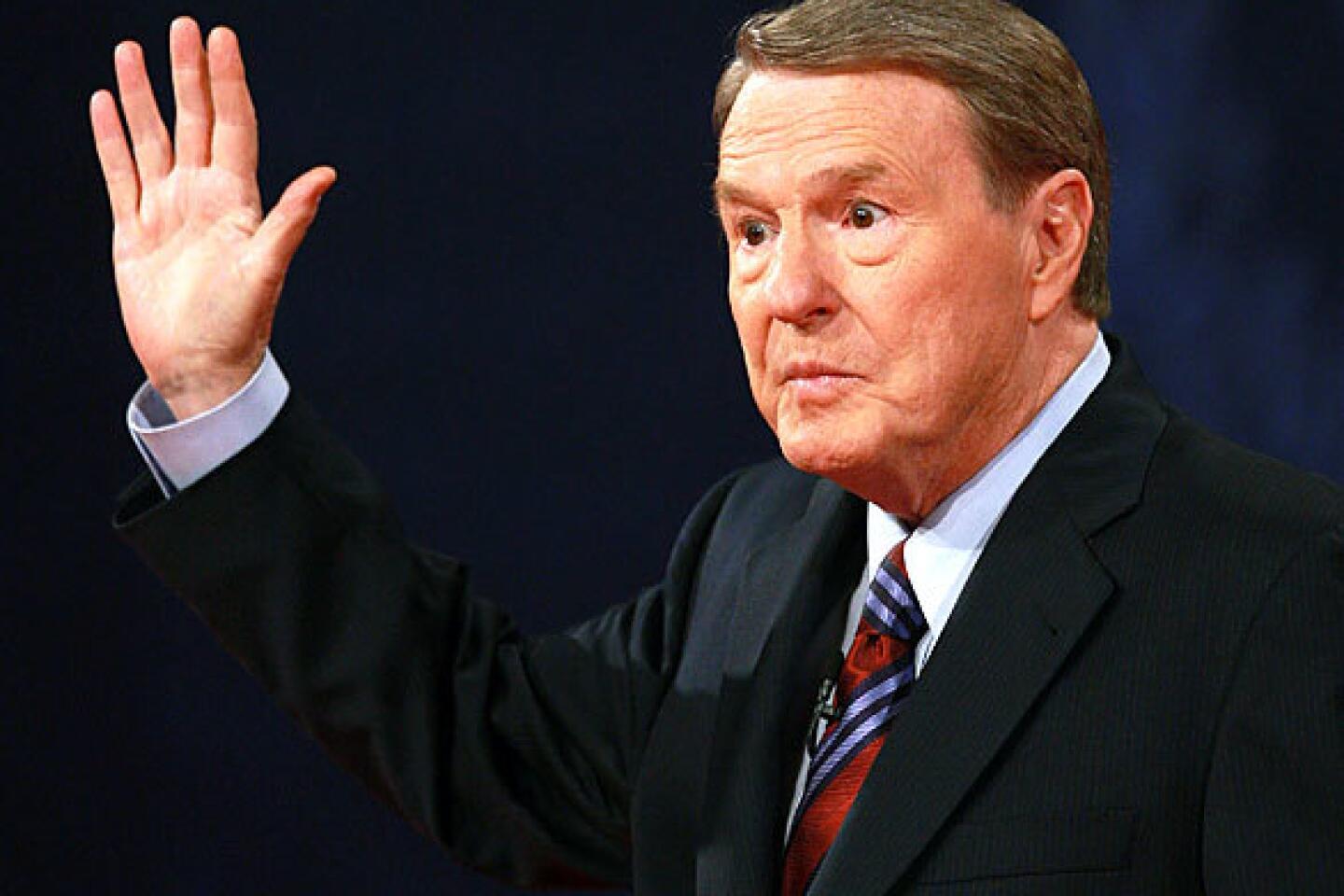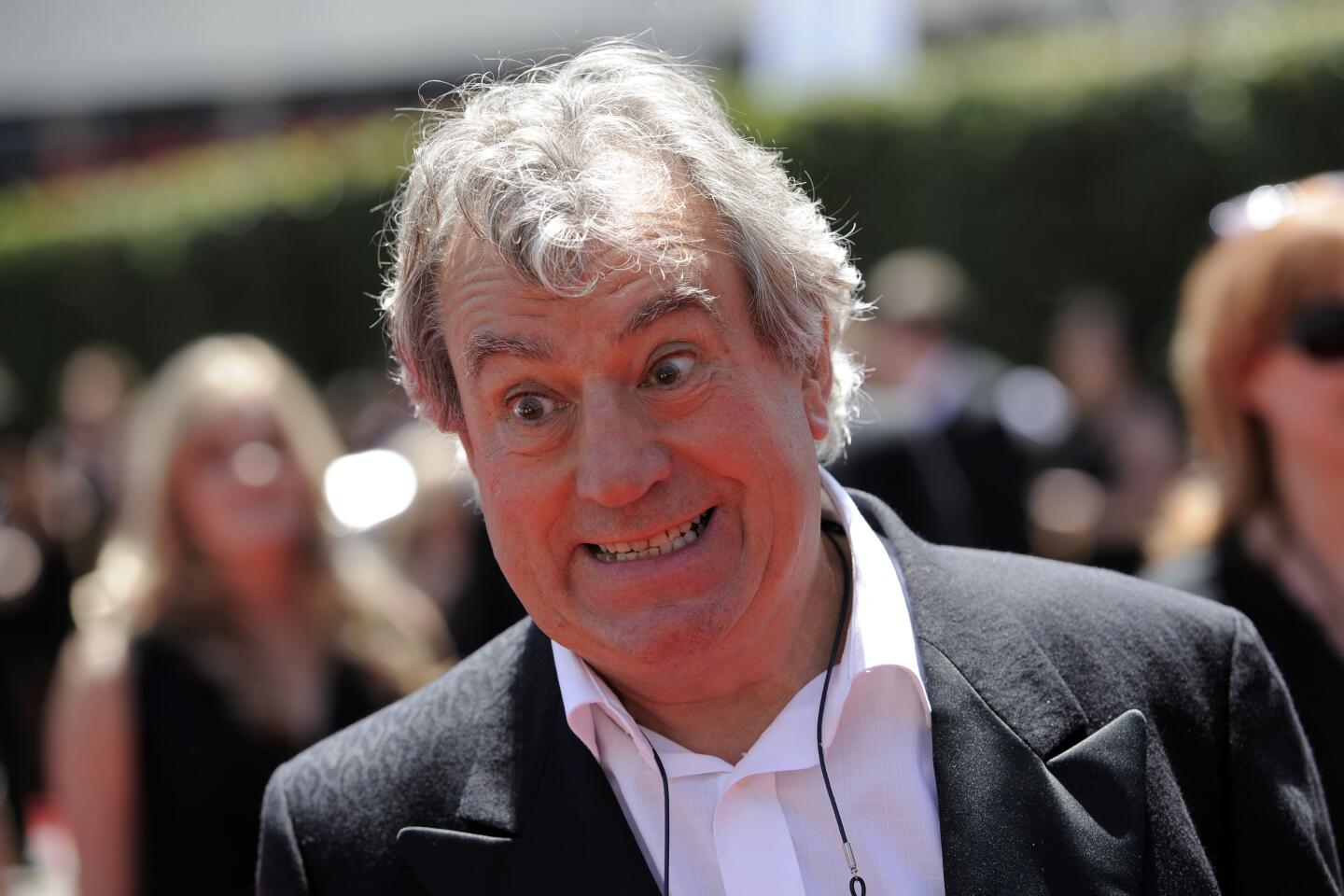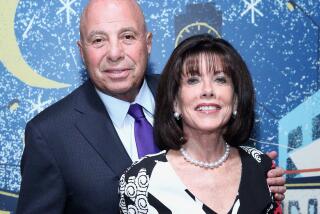NEW YORK — Jim Lehrer, the somber and thoughtful television news anchor who helped build “PBS NewsHour” into an authoritative yet accessible voice of public broadcasting, died Thursday. He was 85.
Lehrer, the show’s co-founder, died “peacefully in his sleep at home,” Judy Woodruff, anchor and managing editor of “PBS NewsHour,” announced in a statement. “I’m heartbroken at the loss of someone who was central to my professional life, a mentor to me and someone whose friendship I’ve cherished for decades.”
The broadcaster died at his home in Washington, according to PBS, but no cause of death was specified. Lehrer had retired in 2011 after anchoring the show for 36 years. He also appeared 12 times as a presidential debate moderator.
He and Robert MacNeil founded the PBS program in 1975, an outgrowth of their 1973 coverage of the Senate Watergate hearings on PBS. They viewed broadcast journalism as a public service — to provide a greater understanding of events and issues that shaped the nation’s social fabric and its citizens.
The program, first called “The Robert MacNeil Report” and then “The MacNeil-Lehrer Report,” became the nation’s first one-hour TV news broadcast in 1983. With an in-depth look at the issues, the retitled “PBS NewsHour” continues to stand apart from today’s opinion-fueled cable newscasts and the evening broadcasts on NBC, ABC and CBS, which largely air truncated stories in an attempt to cover the headlines of the day in a mere 22 minutes.
Politics, international relations, economics, science, even developments in the arts all received lengthy, detailed coverage.
“We both believed the American people were not as stupid as some of the folks publishing and programming for them believed,” Lehrer wrote of his and MacNeil’s approach in his 1992 memoir, “A Bus of My Own.” “We were convinced they cared about the significant matters of human events.... And we were certain they could and would hang in there more than 35 seconds for information about those subjects if given a chance.”
He conducted interviews with presidents and numerous foreign leaders, including British Prime Minister Margaret Thatcher and Palestinian leader Yasser Arafat in the 1980s. Among his most memorable interviews was one with President Clinton in January 1998.
Lehrer was the first person to question the president after news of his relationship with Monica Lewinsky broke. Lehrer earnestly began the question by stating that Kenneth Starr, then an independent counsel, was investigating whether Clinton had suborned perjury by encouraging the former White House intern to lie under oath during a civil deposition. Lehrer then asked: “Mr. President, is that true?”
After Clinton denied that he had an “improper relationship,” Lehrer pressed further. “You had no sexual relationship with this young woman?”
“Jim set the gold standard for broadcast journalism in our nation and devoted his life to a vital public service ― keeping Americans informed and thereby strengthening our civil society,” Sharon Percy Rockefeller, president and chief executive of Washington public broadcast station WETA, said in a statement. “Through his extraordinary insight, integrity, balance and discipline, Jim earned the trust of the American people, and his important legacy lives on at ‘PBS NewsHour.’”
The poker-faced Lehrer moderated his first presidential debate in 1988 and was a frequent consensus choice for the task in subsequent presidential contests.
“In an increasingly fractured, polarized environment, the major party nominees trusted him with moderating general election debates because they knew he was knowledgeable, nonpartisan and fair,” said Kathleen Hall Jamieson, director of the Annenberg Public Policy Center in Pennsylvania. “And that’s a real tribute to his objectivity and fairness.”
He also anchored PBS coverage of inaugurations and conventions, dismissing criticism from other TV news organizations that the latter had become too scripted to yield much in the way of real news.
“I think when the major political parties of this country gather together their people and resources in one place to nominate their candidates, that’s important,” Lehrer told the Associated Press in 2000. “To me, it’s a non-argument. I don’t see why someone would argue that it wasn’t important.”
Lehrer endured criticism for being so low-key in the big televised events. After a matchup between George W. Bush and Al Gore in 2000, late-night TV show host David Letterman cracked, “Last night was probably the first and only time that Jim Lehrer [was] the most exciting person in the room.”
But the real-life Lehrer — who had a tradition of buying a new tie for good luck before each debate — was more colorful than the version he projected to viewers at home. He was a playwright in addition to being a novelist. His debut novel, “Viva Max!,” was made into a movie starring Peter Ustinov. He did a whole series of novels about the adventures of an Oklahoma politician known as the One-Eyed Mack.
He wrote 20 novels and several plays.
1/25
Kobe Bryant, Ruth Bader Ginsburg, Sean Connery and more. (Los Angeles Times)
2/25
Rafer Johnson, winner of the 1960 Olympic decathlon gold medal, was a man whose legacy was interwoven with Los Angeles history, beginning with his performances as a world-class athlete at UCLA and punctuated by the night in 1968 when he helped disarm Robert F. Kennedy’s assassin at the Ambassador Hotel. Johnson lit the Olympic flame at the opening of the 1984 Summer Games in Los Angeles. He was 86.
(Mel Melcon / Los Angeles Times) 3/25
With his quick wit and easy smile,
Alex Trebek drove the game show “Jeopardy!” up the ratings charts and became a welcome television host in America’s living rooms. As the quiz show rolled through the decades, Trebek remained a comfortable fit — in a 2014 Reader’s Digest poll, Trebek ranked as the eighth-most trusted person in the United States, right behind Bill Gates and 51 spots above Oprah Winfrey. He was 80.
(Los Angeles Times) 4/25
Guitarist Eddie Van Halen’s speed and innovations along the fretboard inspired a generation of imitators as the band bearing his name rose to MTV stardom and multiplatinum sales over 10 consecutive albums. The streak made Van Halen one of the most successful bands in rock history, including two albums that reached diamond status (10 million copies sold): 1978’s debut “Van Halen” and 1984’s “1984.” He was 65.
(Wibbitz/Getty) 5/25
Justice Ruth Bader Ginsburg championed women’s rights — first as a trailblazing civil rights attorney who methodically chipped away at discriminatory practices, then as the second woman to serve on the Supreme Court, and finally as an unlikely pop culture icon. A feminist hero dubbed Notorious RBG, Ginsburg became the leading voice of the court’s liberal wing, best known for her stinging dissents on a bench that mostly skewed right since her 1993 appointment. She was 87.
(Kiichiro Sato / Associated Press) 6/25
Chadwick Boseman’s breakout role was playing Dodger Jackie Robinson in the 2013 sports biopic “42.” The next year, he made an electrifying lead turn as James Brown, the Godfather of Soul, in “Get on Up.” Then came the role that would change his career: As
Black Panther, the Marvel Cinematic Universe’s first Black superhero, Boseman became the face of Wakanda to millions of fans around the world and helped usher in a new and inclusive era of superhero blockbusters. He was 43.
(Jay L. Clendenin / Los Angeles Times) 7/25
Sumner Redstone outmaneuvered rivals to assemble one of America’s leading entertainment companies, now called ViacomCBS, which boasts CBS, Comedy Central, MTV, Nickelodeon, BET, Showtime, the Simon & Schuster book publisher and Paramount Pictures movie studio. Unlike contemporaries Rupert Murdoch and Ted Turner, Redstone was not a visionary, but rather a hard-charging lawyer and deal maker who pursued power and wealth through the accumulation of content companies. He was 97.
(Brian Vander Brug / Los Angeles Times) 8/25
Regis Philbin reigned for decades as the comfortable and sometimes cantankerous morning host of “Live,” first with Kathie Lee Gifford and later Kelly Ripa, above. He earned Emmy nominations by the armful, hosted New Year’s Eve specials, rode in parades, set a record for the most face-time hours on television and helped reinvigorate prime-time game shows with “Who Wants to Be a Millionaire.” He was 88.
(Charles Sykes / Associated Press) 9/25
Rep. John Lewis famously shed his blood at the foot of a Selma, Ala., bridge in a 1965 demonstration for Black voting rights, and went on to become a 17-term Democratic member of Congress. An inspirational figure for decades, Lewis was one of the last survivors among members of the Rev. Martin Luther King Jr.’s inner circle. He was 80.
(Mark Humphrey / Associated Press) 10/25
Country music firebrand and fiddler Charlie Daniels started out as a session musician, which included playing on Bob Dylan’s 1969 album “Nashville Skyline,” and beginning in the early 1970s toured endlessly with his own band, sometimes doing 250 shows a year. In 1979, Daniels had a crossover smash with “The Devil Went Down to Georgia,” which topped the country chart, hit No. 3 on the pop chart and was voted single of the year by the Country Music Assn. He was 83.
(Rick Diamond / Getty Images for IEBA) 11/25
Carl Reiner first came to national attention in the 1950s on Sid Caesar’s “Your Show of Shows,” where he wrote alongside Mel Brooks, Neil Simon and other comedy legends. He later created “The Dick Van Dyke Show,” one of TV’s most fondly remembered sitcoms, and directed hit films including “The Comic” (1969), starring Van Dyke; “Where’s Poppa?” (1970), starring George Segal and Ruth Gordon; “Oh, God!” starring George Burns and John Denver; and four films starring Steve Martin. He was 98.
(Associated Press ) 12/25
The flamboyant, piano-pounding Little Richard roared into the rock ‘n’ roll spotlight in the 1950s with hits such as “Tutti-Frutti,” “Long Tall Sally” and “Good Golly, Miss Molly.” The Georgia native’s raucous sound fused gospel
fervor and R&B sexuality, profoundly influencing the Beatles, James Brown (who succeeded him in one of his early bands), Jimi Hendrix (one of his backup musicians in the mid-’60s) and Bruce Springsteen. He was 87.
(Boris Yaro / Los Angeles Times) 13/25
Don Shula was the NFL’s winningest coach, leading the 1972 Miami Dolphins to the league’s only undefeated season. He coached the Baltimore Colts to one Super Bowl and the Dolphins to five, winning Lombardi Trophies after the 1972 and ’73 seasons. He was 90.
(ASSOCIATED PRESS) 14/25
Former Egyptian
President Hosni Mubarak crushed dissent for decades until the 2011 Arab Spring movement drove him from power. During his presidency, which spanned nearly 30 years, he protected Egypt’s stability as intifadas roiled Israel and the Palestinian territories, the U.S. led two wars against Iraq, Iran fomented militant Shiite Islam across the region and global terrorism complicated the divide between East and West. He was 91.
(Sameh Sherif / AFP/Getty Images) 15/25
Among his 40-odd films,
burly Brian Dennehy played a sheriff who jailed Rambo in “First Blood,” a serial killer in “To Catch a Killer” and a corrupt sheriff in “Silverado.” On Broadway, he was awarded Tonys for his roles in “Death of a Salesman” (1999) and “Long Day’s Journey Into Night” (2003). He was 81.
(Dia Dipasupil) 16/25
Singer-songwriter John Prine broke onto the folk scene in 1971 with a self-titled album that included two songs brought to broader audiences by Bette Midler and Bonnie Raitt: “Hello in There” and “Angel From Montgomery,” respectively. In 2019, he was elected to the Songwriters Hall of Fame. He was 73.
(Frazer Harrison / Getty Images for Stagecoach) 17/25
Country singer Kenny Rogers racked up an impressive string of hits — initially as a member of The First Edition starting in the late 1960s and later as a solo artist and duet partner with Dolly Parton — and earned three Grammy Awards, 19 nominations and a slew of accolades from country-music awards shows. Country purists balked at his syrupy ballads, but his fans packed arenas that only the titans of rock could fill. He was 81.
(Suzanne Mapes / Associated Press) 18/25
Xerox researcher Larry Tesler pioneered concepts that made computers more user-friendly, including moving text through cut, copy and paste. In 1980, he joined Apple, where he worked on the Lisa computer, the Newton personal digital assistant and the Macintosh. He was 74.
(AP) 19/25
Ski industry pioneer Dave McCoy transformed a remote Sierra peak into the storied Mammoth Mountain Ski Area. Over six decades, it grew from a downhill depot for friends to a profitable operation of 3,000 workers and 4,000 acres of ski trails and lifts, a mecca for generations of skiers and boarders. He was 104. (Genaro Molina / Los Angeles Times)
20/25
Screen icon
Kirk Douglas brought a clenched-jawed intensity to an array of heroes and heels, receiving Oscar nominations for his performances as an opportunistic movie mogul in the 1952 drama “The Bad and the Beautiful” and as Vincent van Gogh in the 1956 drama “Lust for Life.” As executive producer of “Spartacus,” Douglas helped end the Hollywood blacklist by giving writer Dalton Trumbo screen credit under his own name. He was 103.
(Annie Wells / Los Angeles Times) 21/25
“Queen of Suspense”
Mary Higgins Clark became a perennial best-seller, writing or co-writing “A Stranger Is Watching,” “Daddy’s Little Girl” and more than 50 other favorites. Her sales topped 100 million copies, and many of her books, including “A Stranger is Watching” and “Lucky Day,” were adapted for movies and television. She was 92.
(Associated Press) 22/25
Fred Silverman was the head of programming at CBS, where he championed a string of hits including “The Mary Tyler Moore Show,” “All in the Family,” “MASH” and “The Jeffersons.” Later at ABC, he programmed “Laverne & Shirley,” “The Love Boat,” “Happy Days” and the 12-hour epic saga “Roots.” He was 82.
(Associated Press) 23/25
Former California
Rep. Fortney “Pete” Stark Jr. represented the East Bay in Congress for 40 years. The influential Democrat helped craft the Affordable Care Act, the signature healthcare achievement of the Obama administration, and also created the 1986 law best known as COBRA, which allows workers to stay on their employer’s health insurance plan after they leave a job. He was 88.
(Associated Press) 24/25
News anchor
Jim Lehrer appeared 12 times as a presidential debate moderator and helped build “PBS NewsHour” into an authoritative voice of public broadcasting. The program, first called “The Robert MacNeil Report” and then “The MacNeil-Lehrer Report,” became the nation’s first one-hour TV news broadcast in 1983. Lehrer was 85.
(David McNew / Getty Images) 25/25
Terry Jones was a founding member of the Monty Python troupe who wrote and performed for their early ’70s TV series and films including “Monty Python and the Holy Grail” in 1975 and “Monty Python’s Life of Brian” in 1979. After the Pythons largely disbanded in the 1980s, Jones wrote books on medieval and ancient history, presented documentaries, wrote poetry and directed films. He was 77.
(Associated Press) James Charles Lehrer was born in Wichita, Kan., in 1934. In addition to titling his memoir “A Bus of My Own,” he collected bus memorabilia — from station signs to an actual 1946 Flxible Clipper bus, a nod to his lean upbringing. His parents once owned a modest bus line that transported passengers from farm communities in rural Kansas, Oklahoma and Texas that were too small for Greyhound.
After graduation from college in 1956, he served three years in the Marines — and later called the experience so valuable he thought all young people should take part in national service.
“I had no close calls, no rendezvous with danger, no skirted destinies with death,” he wrote. “What I had was a chance to discover and test myself, physically and emotionally and spiritually, in important, lasting ways.”
He went to work from 1959 to 1970 at the Dallas Morning News and the now-defunct Dallas Times Herald. Lehrer jumped to television on a Dallas nightly newscast. He went to Washington in 1972 to work for the Public Broadcasting System and teamed up with MacNeil to cover the Watergate hearings. After that, the pair launched their program.
Their show eventually was renamed “The MacNeil-Lehrer NewsHour.” After MacNeil retired in 1995, it became known as “The NewsHour With Jim Lehrer.” In 2009, he removed his name from the title of the show.
Lehrer -- who had suffered a heart attack in 1983 and in April 2008 underwent heart valve surgery -- then began his gradual exit. He later told the Los Angeles Times that in 2009, he began making plans for his succession at the show. He retired two years later, bringing an end to the longest run of a national anchorman.
“It seemed like a natural time to go,” he told The Times.
He is survived by his wife, Kate; daughters Jamie, Lucy and Amanda; and six grandchildren.
The Associated Press contributed to this report.
